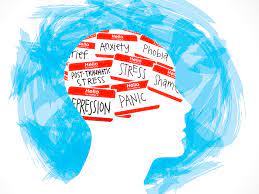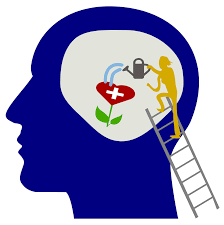How Does Coffee Affect Mental Health ? Discover how your daily coffee ritual could be influencing your mood, cognition, and overall mental health. In this comprehensive exploration, we delve into the latest research and expert insights to understand the complex relationship between coffee consumption and mental well-being.
Understanding Caffeine: More Than Just a Morning Jolt
The energizing effect of caffeine is well-known, but what exactly is happening in our brains when we consume it? Caffeine is a stimulant that works by blocking adenosine receptors, leading to increased alertness and concentration.
The action of caffeine can vary greatly between individuals due to factors like metabolism and sensitivity to caffeine. Caffeine is the most widely consumed psychoactive substance in the world, making it a significant factor to consider in discussions about mental health.
Caffeine and Psychiatric Disorders: What’s the Connection?
The relationship between caffeine and psychiatric disorders is a subject of increasing interest within the medical community. Caffeine, being a central nervous system stimulant, can have both positive and negative effects on mental health. It’s important to explore how this commonly consumed substance might interact with various psychiatric conditions.
The Bipolar Spectrum and Caffeine Consumption
For individuals with bipolar disorder, caffeine’s stimulating effects might lead to a heightened state of arousal, which could potentially trigger mania or increase rapid cycling between mood states. Moderation in caffeine intake is often recommended for those with bipolar disorder.
Caffeine and Anxiety Disorders
Caffeine use can sometimes lead to increased anxiety, especially in those predisposed to anxiety disorders. The stimulant properties of caffeine heighten the body’s fight-or-flight response, which can exacerbate symptoms of panic and anxiety. This suggests that people with anxiety disorders might need to monitor their caffeine consumption closely.
Caffeine’s Impact on Schizophrenia
For those with schizophrenia, caffeine use might interact with medication efficacy and worsen certain symptoms. The way caffeine acts in the brain can sometimes mimic or amplify the effects of psychosis, though research in this area is ongoing to understand the full implications.
While moderate caffeine may help with focus and alertness, the risks it poses for exacerbating psychiatric symptoms cannot be ignored. Individuals with mental health disorders should consult healthcare professionals to understand better the role caffeine plays in their mental health management plan.
Can a Cup of Coffee Boost Your Mental Performance?
The short answer is yes, coffee, or more specifically the caffeine it contains, can boost mental performance in several ways.
Short-term Cognitive Enhancements
A cup of coffee can temporarily sharpen your focus and increase alertness. This is particularly useful for tasks that require sustained attention or wakefulness. Caffeine achieves this by blocking adenosine receptors in the brain, which normally promote sleep and relaxation, thereby increasing neuronal firing and the release of other neurotransmitters like dopamine and norepinephrine that enhance concentration and energy.
Memory and Learning
There’s evidence suggesting that caffeine may also have a positive effect on memory. A study found that caffeine intake following a learning session could enhance memory consolidation, making it easier to recall information later. This effect appears to be most pronounced when consuming caffeine in low to moderate doses; high doses might actually impair performance.
Long-term Mental Performance
Regular, heavy caffeine use can lead to tolerance, meaning the same effects are achieved with increasing amounts of caffeine. Over time, this can lead to dependence and potential withdrawal symptoms, which can negatively affect cognitive function.
while a cup of coffee can certainly give you a mental edge in the short term, it’s important to consume it in moderation to avoid any negative long-term effects.
| Effect | Description | Recommended Dosage |
|---|---|---|
| Alertness | Increases ability to stay awake and attentive. | 1-2 cups (95-200 mg of caffeine) |
| Concentration | Improves focus on tasks at hand. | 1-2 cups (95-200 mg of caffeine) |
| Memory Consolidation | Enhances the ability to recall information. | 1 cup (about 95 mg of caffeine) |
| Long-term Performance | May lead to dependence and withdrawal symptoms affecting performance negatively. | Limit intake to 3-4 cups per day (up to 400 mg of caffeine) |
while caffeine can indeed sharpen your mind and improve in the short term, it’s essential to be mindful of your overall consumption to maintain these benefits without negative side effects.
Coffee and Tea: Comparing Mental Health Effects
When it comes to the mental health effects of coffee and tea, both beverages have unique characteristics that can influence cognitive function and overall well-being. Let’s compare the two in terms of their impact on mental health.
Table: Mental Health Effects Comparison
| Aspect | Coffee | Tea |
|---|---|---|
| Caffeine Content | Typically higher caffeine content, providing a strong boost. | Contains lower caffeine levels, offering a milder effect. |
| Alertness and Focus | Known for providing a quick energy spike and enhanced focus. | Offers a gentler, sustained alertness without jitters. |
| Anxiety and Irritability | May lead to increased anxiety and restlessness in some individuals. | Less likely to cause anxiety and may promote relaxation. |
| Sleep Disruption | Higher caffeine levels can disrupt sleep patterns if consumed late. | Lower caffeine levels are less likely to affect sleep quality. |
| Antioxidant Benefits | Contains antioxidants that may have neuroprotective effects. | Rich in antioxidants that support brain health and cognition. |
| Ritual and Relaxation | Often associated with social rituals and a sense of comfort. | Known for promoting relaxation and mindfulness in tea ceremonies. |
while both coffee and tea offer their own set of mental health benefits, individuals should consider their personal sensitivity to caffeine and the desired effects when choosing between the two beverages for mental well-being.
Recognizing the Signs of Caffeine Dependency
While not typically classified as an addiction, dependence on caffeine can develop through regular consumption. Symptoms may include withdrawal effects such as headaches and fatigue when trying to cut back or quit. Being dependent on caffeine can affect one’s mental health and daily functioning.
Towards a Balanced Approach: Moderating Caffeine Intake for Mental Health

Maintaining a balanced approach to caffeine intake is crucial for safeguarding mental health and overall well-being. Here are some key considerations to ensure a mindful and moderate approach to caffeine consumption:
Moderation is Key
Personal Sensitivity: Recognize your individual tolerance to caffeine and adjust your intake accordingly. Some people may be more sensitive to its effects, especially in relation to anxiety and sleep disruption.
Daily Limits: Consider adhering to recommended daily limits to avoid overconsumption. For most adults, defined as 3-4 cups of coffee per day, which equates to around 400 milligrams of caffeine.
Timing and Awareness
Morning Consumption: Limiting caffeine intake to the morning hours can help mitigate its potential impact on sleep quality.
Hidden Sources: Be mindful of hidden sources of caffeine, such as certain medications, energy drinks, and even some decaffeinated beverages that still contain trace amounts of caffeine.
Individual Health Considerations
Preexisting Conditions: Individuals with anxiety disorders, insomnia, or other mental health conditions may need to be particularly cautious with their caffeine consumption, as it can exacerbate symptoms in some cases.
Consultation: If you have concerns about how caffeine might be affecting your mental health, consider consulting a healthcare professional for personalized guidance.
Alternatives and Balance
Tea Options: Incorporating lower-caffeine options like tea into your routine can offer a gentler alternative while still providing some cognitive benefits.
Hydration: Balancing caffeine consumption with adequate hydration is essential for overall well-being. Sufficient water intake can help mitigate potential dehydration linked to caffeine.
It’s important to remain attuned to personal responses to caffeine and make adjustments as needed to support mental health and overall wellness.
Key Takeaways:
- Moderate caffeine intake can have beneficial effects on alertness and mood.
- High levels of caffeine consumption can exacerbate anxiety and disrupt sleep.
- Individual sensitivity varies greatly; personal thresholds should guide intake.
- Coffee and tea differ in caffeine content, offering options for managing intake.
- Recognizing and addressing caffeine dependency is important for mental health.
FAQ:
Q: What are the negative psychological effects of coffee?
A: Negative psychological effects of coffee can include increased anxiety, restlessness, and disrupted sleep patterns, particularly when consumed in excessive amounts or by individuals sensitive to caffeine.
Q: Should I drink coffee if I am depressed?
A: Individuals with depression should be cautious with coffee consumption, as caffeine can exacerbate symptoms of anxiety and restlessness, potentially worsening the condition. Consulting a healthcare professional for personalized advice is recommended.
Q: Does coffee calm you down?
A: While some individuals may experience a temporary sense of alertness and focus from coffee, it can also lead to increased anxiety and restlessness in others. It does not typically have calming effects and may even have the opposite impact for some individuals.
Q: How can I drink coffee without anxiety?
A: To enjoy coffee without exacerbating anxiety, consider opting for decaffeinated versions or choosing lower-caffeine alternatives like tea. Additionally, moderating your overall caffeine intake, being mindful of timing, and staying hydrated can help reduce the risk of anxiety.


Leave a Reply